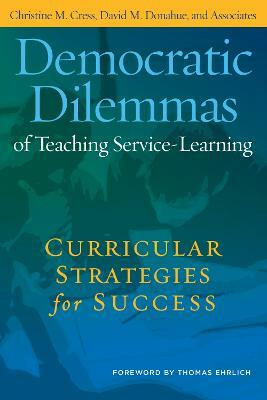Democratic Dilemmas of Teaching Service-Learning(English, Paperback, Cress Christine M.)
Quick Overview
Product Price Comparison
A college student wants to lead a campaign to ban a young adult novel from his child's elementary school as his service-learning project in a children's literature course. Believing the book is offensive to religious sensibilities, he sees his campaign as a service to children and the community. Viewing such a ban as limiting freedom of speech and access to information, the student's professor questions whether leading a ban qualifies as a service project. If the goal of service is to promote more vital democratic communities, what should the student do? What should the professor do? How do they untangle competing democratic values? How do they make a decision about action?This book addresses the teaching dilemmas, such as the above, that instructors and students encounter in service-learning courses.Recognizing that teaching, in general, and service-learning, in particular, are inherently political, this book faces up to the resulting predicaments that inevitably arise in the classroom. By framing them as a vital and productive part of the process of teaching and learning for political engagement, this book offers the reader new ways to think about and address seemingly intractable ideological issues.Faculty encounter many challenges when teaching service learning courses. These may arise from students' resistance to the idea of serving; their lack of responsibility, wasting clients' and community agencies' time and money; the misalignment of community partner expectations with academic goals; or faculty uncertainty about when to guide students' experiences and when direct intervention is necessary.In over twenty chapters of case studies, faculty scholars from disciplines as varied as computer science, engineering, English, history, and sociology take readers on their and their students' intellectual journeys, sharing their messy, unpredictable and often inspiring accounts of democratic tensions and trials inherent in teaching service-learning. Using real incidents - and describing the resources and classroom activities they employ - they explore the democratic intersections of various political beliefs along with race/ethnicity, class, gender, ability, sexual orientation, and other lived differences and likenesses that students and faculty experience in their service-learning classroom and extended community. They share their struggles of how to communicate and interact across the divide of viewpoints and experiences within an egalitarian and inclusive environment all the while managing interpersonal tensions and conflicts among diverse people in complex, value-laden situations. The experienced contributors to this book offer pedagogical strategies for constructing service-learning courses, and non-prescriptive approaches to dilemmas for which there can be no definitive solutions.


